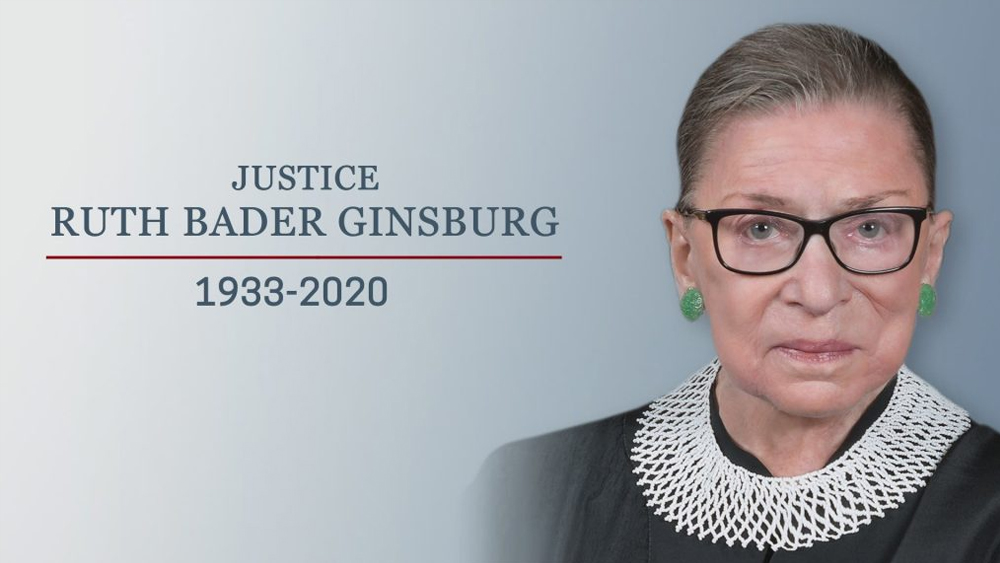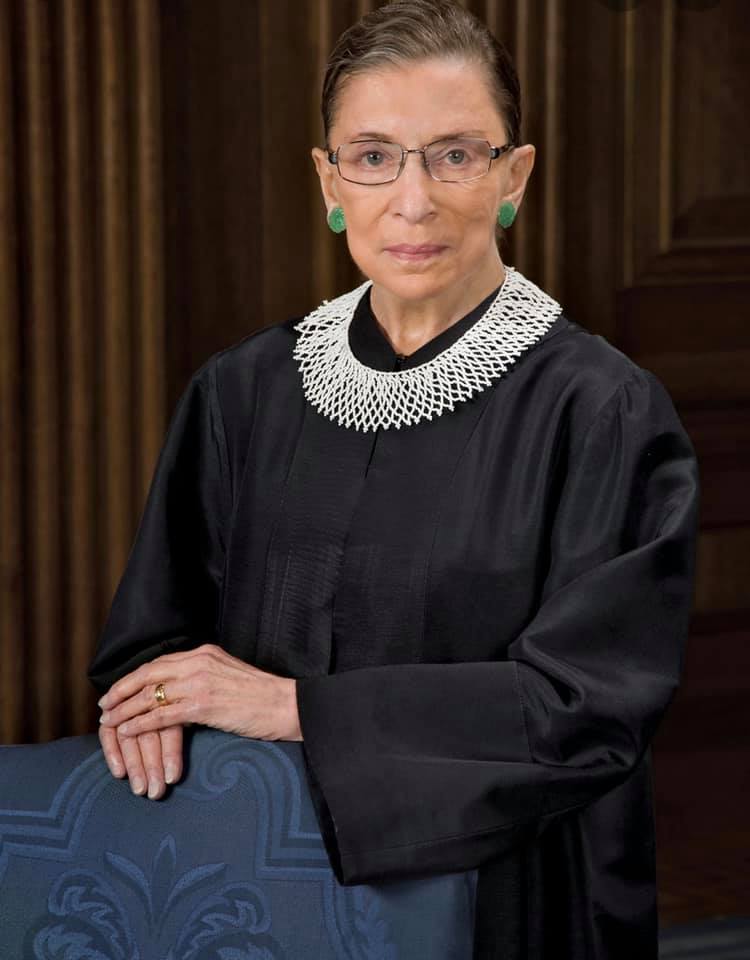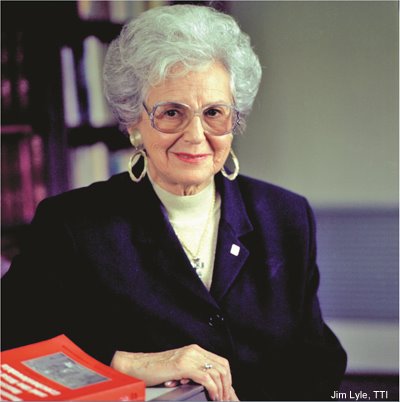
Throughout her career, Ruth Bader Ginsburg increased the legal rights of half the United States population. Her work and legacy will continue to be studied by liberal arts scholars for many years.
By Rachel Knight ‘18
On August 10, 1993, Ruth Bader Ginsburg became the second female U.S. Supreme Court justice and a beacon of hope in the fight for gender equality. On September 18, 2020—the eve of the Jewish holiday of Rosh Hashanah—she lost her battle with pancreatic cancer. Her work and leadership will continue to shape society and be studied for many years by liberal arts scholars.

A quick look at the United States during a historical period of rapid change at Texas A&M University highlights the significance of Ginsburg’s early career and creates a lens through which we can see the significance of her life-long dedication to educating a male-dominated society about gender equality.
While Texas A&M started admitting women after the Board of Directors (now Board of Regents) opened the door for women to enroll at the formerly all-male, predominantly military institution on April 27, 1963, similar higher education institutions across the nation failed to do the same.
Judith Baer, political science professor emerita at Texas A&M, can speak first-hand to the challenges women faced in higher education at that time.
“As late as the 1960s, law, graduate, and professional schools routinely rejected women applicants on the grounds that they would marry, have babies, drop out, and waste their education,” Baer explained. “This attitude was reflected in a 1961 Supreme Court decision that upheld a state law excusing women from jury duty because of their role as ‘the center of home and family life.’ This was still going on when I was going to grad school in the late 60s and early 70s.”
Terry Anderson, history professor and a Cornerstone Faculty Fellow, said sex discrimination was also experienced by female faculty members and female professionals in the workplace.
“One of my former colleagues was Betty Miller Unterberger,” Anderson shared. “Earl Rudder hired her as the first tenured female full professor in 1968. She had to suffer the same types of statements as the first two female Supreme Court jurists fielding questions like, ‘Why did you take a job away from a man?’ She retired as a Distinguished Professor.”
After experiencing discrimination in her own education and early career, Ginsburg became the first female professor at Columbia to earn tenure. In the 1970s she also directed the Women’s Rights Project of the American Civil Liberties Union. She successfully argued six landmark cases before the U.S. Supreme Court in this role, which made her a thought leader on gender equality and the lead fighter against gender discrimination.
Her six landmark cases aimed to educate the Supreme Court on sex discrimination. She said her audience in this task was not so much hostile as uncomprehending. Her goal was to make them comprehend the neutrality of gender discrimination. She did this by taking cases like Weinberger v. Wiesenfeld, in which a man was hurt by gender discrimination (as well as cases in which women were hurt by gender discrimination).
“If a man died and left a widow and minor children, the widow would get benefits as well as the child, but if a woman died leaving her husband and minor children, the husband got nothing,” Baer explained. “A man named Wiesenfeld, whose wife had died in childbirth, challenged this. Ruth Ginsburg took the case and won it.”
Ginsburg also wrote a third-party brief for Sharron Frontiero who was a lieutenant in the United States Air Force. Frontiero was denied dependent status for her husband, because of a federal law that stated all married male members of the service got full dependency benefits for their wives, but women only received full dependency benefits for their husbands if they provided more than half their husbands support. With Ginsburg’s brief, Frontiero won in an 8-1 decision from the all-male supreme court at the time.
Jimmy Carter appointed Ginsburg to the United States Court of Appeals for the District of Columbia Circuit in 1980. The appointment meant Ginsburg could no longer take cases as an attorney or write briefs for gender equality cases. Still, she made a big difference on the court.
Ginsburg served on the court for thirteen years. Then, in 1993, then-President Bill Clinton appointed her to the Supreme Court of the United States. She once again picked up her role as an advocate fighting for women’s rights, but with a more neutral approach.

“RBG was a pioneer for women’s rights and equality, especially marked by the majority opinion she wrote for United States v. Virginia 1996, which ruled that the Virginia Military Institute [VMI] could not exclude women,” Anderson shared. “Think about Texas A&M before Earl Rudder—he let women and Black students in after the 1964 Civil Rights Act. VMI did not.”
Baer also admires Ginsburg’s writing in the majority decision of United States v. Virginia, which ruled that VMI’s male-only admissions policy was unconstitutional. Baer said Ginsburg’s leadership in such decisions made her an intellectual leader in gender equality.
“However well this plan serves Virginia’s sons, it makes no provision whatever for her daughters,” Ginsburg wrote in the VMI decision.
Baer said Ginsburg’s language (like that used in the VMI decision) made clear that sex discrimination hurts everyone. Ginsburg often wrote majority opinions in a way that seemed to address America. “She really held people’s feet to the fire, metaphorically speaking,” Baer said.
After Ginsburg was appointed to the Supreme Court, she was occasionally described as the Thurgood Marshall of the women’s rights movement. Marshall argued the 1954 Brown v. Board of Education case in front of the Supreme Court, which resulted in the ruling that declared “separate but equal” schools “inherently unequal” and ordered school integration. This case made Marshall a pioneer in the civil rights rulings favoring virtually every one, Anderson explained.
Marshall and Ginsburg shared more than being a “first” appointed to the Supreme Court. They both led America to take a deeper look at discrimination and continued to address the subject in the opinions they wrote after their appointments. For this reason, the two will likely go down in history in a similar manner.
“We love her,” Anderson said while explaining how Ginsburg’s service will be interpreted in future history books. “She is an inspiration to young women across the nation. Many will want to follow in her footsteps. I imagine that thousands more women will be applying to law school—where, thanks to women’s liberation, they now are about half the students.”
Baer said Ginsburg’s legacy is her quick ability to see and explain gender discrimination in the law. Because of this, her work will continue to be studied for many years.
“She’s probably the greatest constitutional theorist on gender equality that the court has ever seen,” Baer shared. “Her ideas will have a great deal of effect, not only in political science, but in law and history in all of these disciplines. She will be studied by those of us who empathize law and empathize judicial politics.”
When Anderson came to Texas A&M in 1979, most of the women working on campus were secretaries and most of the professors were white men. The university has been improving it’s diversity in terms of students, faculty, and staff ever since thanks to pioneers like Ginsburg who’ve provided the legal means to do so and thanks to trailblazers like Unterberger who paved the way for female faculty members on campus.
“What could be a better legacy than increasing the legal rights of half the population of the USA,” Anderson said. “ [Ginsburg] was a magnificent, brilliant, little lady who was tougher than any Texas wildcatter or ranch hand.”
On Sept. 1, 2022, the Department of Political Science became part of the Bush School of Government & Public Service.
